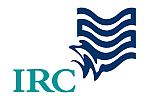IRC International Water and Sanitation Centre
Bridging the knowledge gap and joint learning with partners for improved, low-cost water supply, sanitation and hygiene in developing countries.
Working together to improve aid effectiveness in the water sector
Mapping EU Development Assistance to the Water Sector in Africa: Exercise of the Africa Working Group of the European Union Water Initiative 2007-2008.
Until now, it has not been possible to assess levels of European Union Member States’ funding to water supply and sanitation separately, using existing sources of information. This mapping exercise, initiated by the Africa Working Group of the European Union Water Initiative (EUWIAWG), will help to address this problem. This is particularly important, given the commitment made by African leaders in Durban in February 2008 to have separate allocations for sanitation as described in the eThekwini Declaration on Sanitation.
Read more or download EUWI-AWG finalreport Eng Dec 2008.pdf (1.88 MB)

In Focus: Tackling sustainable water services at scale
Supporting people in poor rural communities to achieve sustainable water services is one of the most important, difficult and neglected challenges of development. Of more than 1 billion people estimated to live without access to improved water services, 900 million live in rural areas. After three decades of concerted effort, many of the poorest people in the world still live with unreliable and unsafe water, putting health at risk and diverting their efforts to improve family income into finding enough water to meet daily necessities.
Add your World Water Day event online
The 22nd March marks the international observance of World Water Day (WWD), a date which is approaching quickly. IRC maintains a special site on which you can post your activities for World Water Day.
Conflict mediation in the water and sanitation sector: And how to reach solutions
This TOP explores current thinking about conflict management in the water and sanitation sector and is meant for individuals who want to understand more about the way to analyse, understand and help to manage conflicts.
Read more or download TOP22_Conflict_08.pdf (790 kB)
Guinea worm: 'close to eradication', says Carter Center
The US-based Carter Center says that health workers are on the verge of eradicating Guinea worm, a parasitical disease that has affected millions of people in Africa and Asia. Cases have been cut by 99.7% and there are hopes that the disease will be completely wiped out by 2010.
Community-managed toilets: Tiruchirappalli sets a good example
The city of Tiruchirappalli in Tamil Nadu, India, is setting a good example with its community-managed toilets (CMTs). The city authorities, communities and NGOs have joined forces to install nearly 340 CMTs, most of which also have bathing and washing facilities.
Preventing corruption in water: strengthening transparency, integrity and accountability
The Hague, The Netherlands, 09 Mar 09 - 11 Mar 09
Participants attending the course will be able to plan anti-corruption initiatives in the water sector on the basis of the latest available research and evidence. They will be equipped with tools to understand the complexity of corruption in the sector, and tools and approaches to take positive, prevention-focused actions to improve systems of integrity and accountability.
Ghana: IRC, WEDC and TREND help train CWSA staff on knowledge management
Knowledge management and sharing experience of IRC and WEDC since 2003 are being used in Ghana, where TREND is tapping this experience in a workshop on knowledge management of selected staff from all districts of the Community Water and Sanitation Agency. WEDC and IRC staff helped facilitate this workshop, which attracted 50 participants in early December 2008.
Slippage of WASH Services: Causes, Costs and How to Counter
Centre for Economic and Social Studies (CESS), Hyderabad, India, First week of March 2009
The main objectives of the workshop are to quantify the scale and extent of the challenge of “slippage of WASH services” and to increase the understanding of the main causes. Secondly the workshop is about disseminating the results of the research and workshop, and scaling-up of good practices related to the WASH slippage challenge.
What's new here?
- Working together to improve aid effectiveness in the water se...
- Full paper - Sanitation challenges for a new municipal assemb...
- Full paper (draft) - The challenges of meeting the water and...
- Full paper (draft) - Performance Benchmarking in four Tehsil...
- Powerpoint presentation - Partnerships for sanitation for the...
- Full paper - Partnerships for sanitation for the urban poor
- Full paper - Sustainable financing options to sanitation for...
- Powerpoint presentation - Political and social dynamics in up...
- Full paper - Political and social dynamics in upgrading urban...
- Powerpoint presentation - Citizens’ participation in improvin...
About IRC
Since its foundation in 1968, the IRC International Water and Sanitation Centre (IRC) has facilitated the sharing, promotion and use of knowledge so that governments, professionals and organisations can better support poor men, women and children in developing countries to obtain water and sanitation services they will use and maintain.

